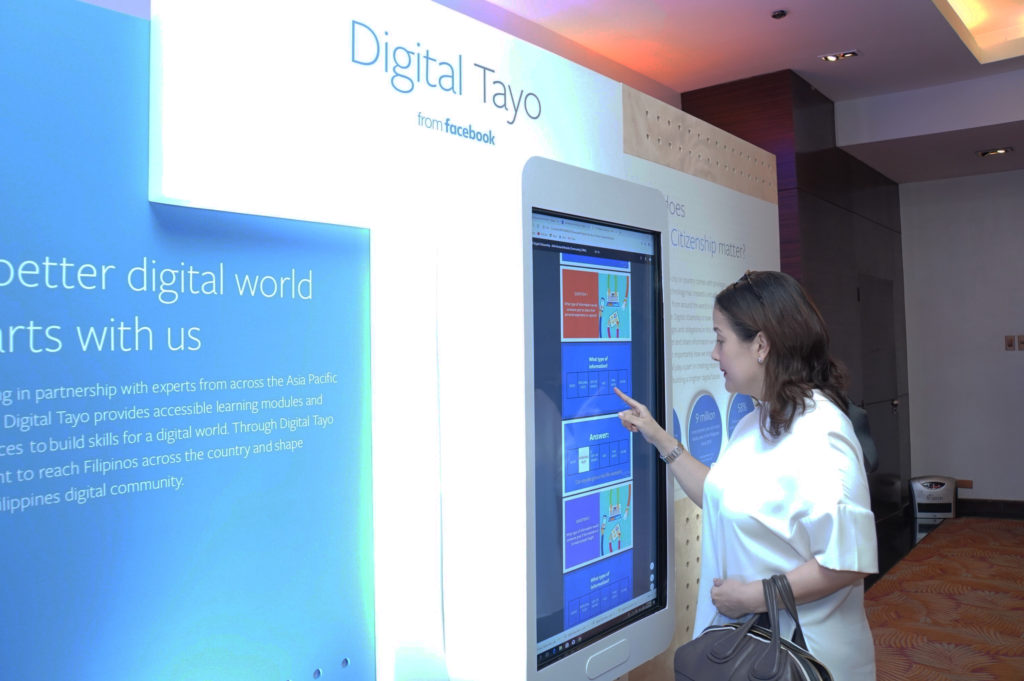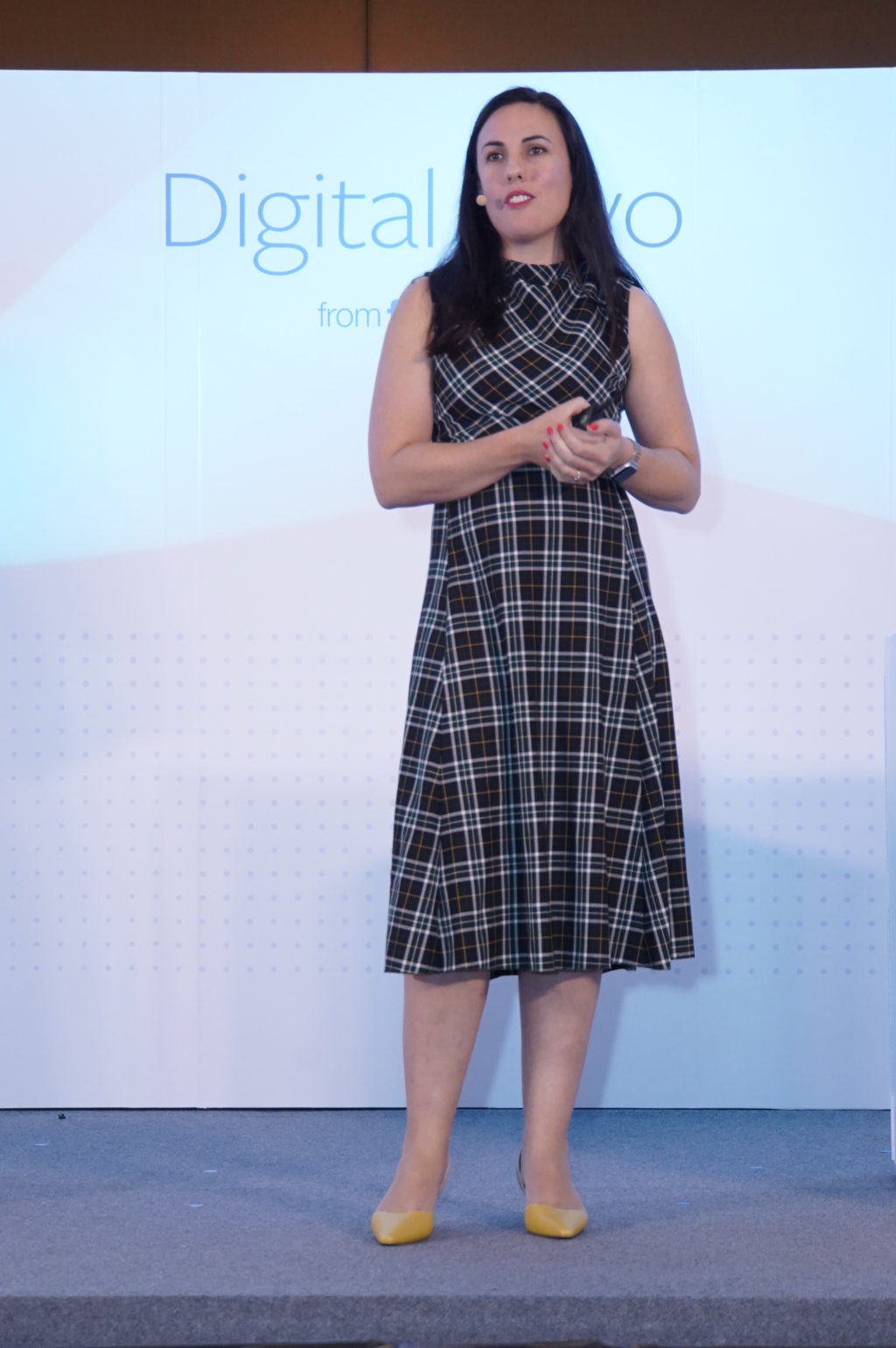
The experience areas make learning more interactive. /Contributed Photo
Facebook in partnership with the Department of Education (DepEd), Department of Information and Communications Technology (DICT), Overseas Workers Welfare Administration (OWWA), and civil society partners launched ‘Digital Tayo,’ a nationwide digital literacy program that aims to develop skills that enable Filipinos to create a positive and safe culture online.
Digital Tayo is the local adaptation of Facebook’s recently launched ‘We Think Digital’, a global digital literacy program, with resources aimed at helping people think critically and share thoughtfully online. The program’s learning resources are designed to help people whether they’re new to the Internet or a digital native who wants to learn more or improve their digital skills.
Facebook and its partners from government, civil society groups, and communities aim to conduct online and in-person training sessions for a million Filipino netizens by the end of 2020.

Clair Deevy, Facebook head of community affairs for APAC Region. /Contributed Photo
“Digital literacy has traditionally focused on helping people learn to use computers, get jobs, or access information from the Internet. But there is a greater need to consider how we are plugging into a global community and connecting with people, not just information. Digital Tayo is more than digital literacy. It’s about ‘digital citizenship’. It is designed to help Filipinos with vital skills such as critical thinking, empathy, and being adept at using tools for online safety and well-being,” said Clair Deevy, Facebook’s director of community affairs for the APAC Region.
“We are glad to be one of Facebook’s partners in launching Digital Tayo for Filipinos, and to help answer the critical question: “What does it mean to be a digital citizen?” We look forward to working with our partners as we equip our learners, teachers and personnel with the much-needed skills for creating a responsible and safe community online,” says Secretary Leonor Briones of the Department of Education.
The program comes at a crucial time in the Philippines as Filipinos were reported to be spending the most time online worldwide at 10 hours and 2 minutes everyday.
Internet users from the Philippines are also the heaviest users of social media, spending an average of four hours and 12 minutes, compared to the worldwide average of two hours and 16 minutes.
In a recent YouGov survey commissioned by Facebook, Filipino respondents were asked about how they deal with negative experiences online. More Filipinos said they were willing to listen and try to understand other people’s viewpoints in face to face conversations (58 percent); but less in an online argument (37 percent). When they encountered hate speech, 40 percent of respondents said that they ignored it, while 28% reported it to social networks.
Digital Tayo aims to further strengthen the Filipinos’ understanding of the online landscape and in turn help them become even more informed digital citizens.
The program’s learning modules are designed to equip people with skills, including the ability to think critically about what they see online, how to communicate respectfully, and engage in digital discourse.
These modules will be rolled out in the coming months to students and youth leaders in partnership with DepEd, to Overseas Filipino Workers (OFWs) through OWWA, to local communities through the Department of ICT, and in training programs to be mounted by Facebook’s partners from civil society.
Topics that will be covered include privacy, safety, security, digital discourse and knowing your digital footprint, organized in four modules:
- What Is the Internet? An explanation of the internet and social media, how they work, and the importance of digital citizenship.
- Your Digital Footprint: All you need to know about safety and security online and managing your digital footprint.
- Be a Critical Thinker: Helping you to discern different types of information and develop critical thinking and empathy when communicating online.
- You as a Digital Citizen: Insights into digital discourse and the differences between interacting online versus offline, your rights and responsibilities, as well as internet concepts like netiquette, being a creator, copyright and plagiarism. /dcb

